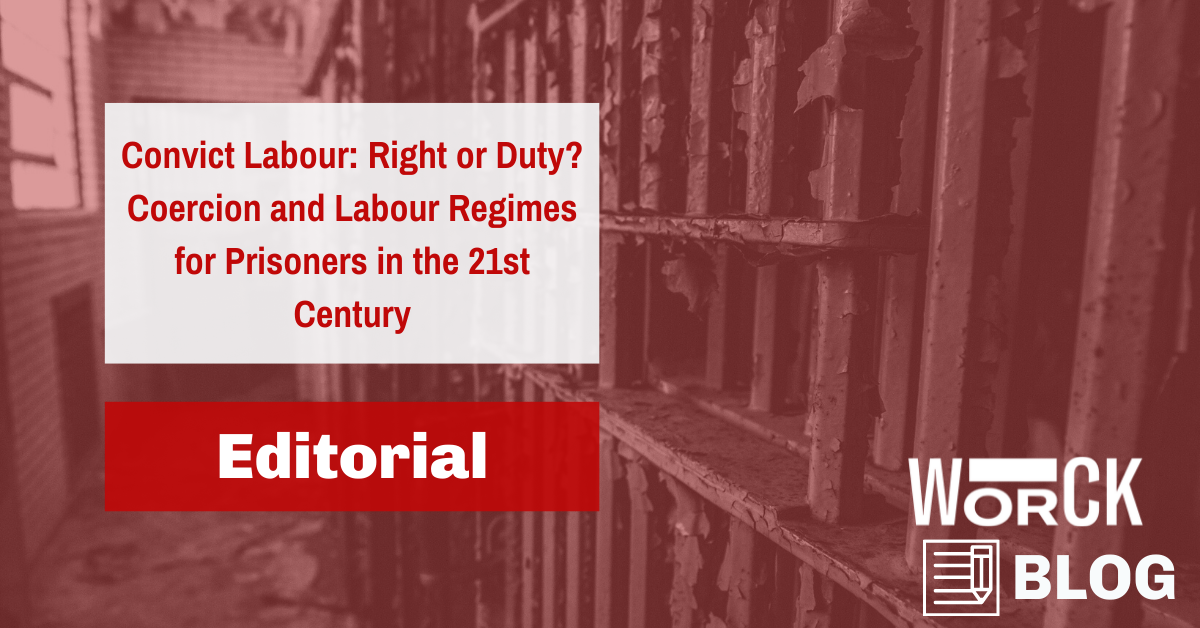In many countries, one way for prisoners to improve their situation in prison is to get a job. Convict labour, however, is often regulated in an ambiguous way. On the one hand, even in the countries where work is considered a right, it is often restricted, for example through “progressive application” – that is, delaying it until the later phases of incarceration. Prison authorities thus claim they do not have the obligation to offer jobs to all their inmates. On the other hand, prisoners, NGOs, and trade unions all over the world have reported cases of abuse and exploitation of prisoners through work. Although labour is usually not an obligation (some countries are an exception), through various coercive measures convict status is tied, in practice, to labour and discipline.
These fundamental ambiguities make it difficult to conceptualize convict labour in the 21st century. One might ask whether convict labour today is still “unfree” or “coerced” labour as it undeniably was in the past. Yet overcoming the rigid dichotomies between free and unfree labour is one of the key points of WORCK. Contemporary convict labour is a valuable testing-ground for our network’s efforts to analyse the degree to which coercion is involved in different labour relations.
Moreover, there is significant diversity not just in the legal status of prisoners, but also the political regimes under which prisons are ruled. This raises important questions: under which circumstances prisoners’ vulnerable legal status and the “race to the bottom” on the labour market combine to increase the pressure on convicts to engage in prison work run by private companies? what type of state and which political and penal cultures are more conducive to the legitimation of forms of openly coerced labour?
Understanding labour coercion in contemporary penal institutions is not just an intellectual exercise. As prisoners are especially vulnerable to abuses regarding wages, labour conditions, access to welfare programs, and punishment, at stake is empowering convicts, their families, and external organizations to claim their rights and fight for the implementation of more protective legislation.
WORCK blog series #3 aims to provide a space for exchanging information and reflections about prisoners’ labour conditions in different countries, in order to contribute to developing networks and measures for the improvement of labour rights for those held in custody.
We invite NGOs, trade unionists, activists, media representatives, concerned citizens, and directly affected prisoners to enter into a debate with an international network of economic and social historians, anthropologists, sociologists, and philosophers of work.
We welcome various types of contributions, and in particular:
- Reviews of press articles, commentaries, or documentaries dealing with the old and new means and mechanisms of labour coercion in prisons
- Prisoners’ reports about labour coercion
- Essays by social and economic historians, anthropologists, sociologists, or philosophers of work reflecting on the new modes of coercion linked to convict labour in the 21st century;
- Initiatives launched by NGOs, citizens’ movements, or individuals to improve prisoners’ labour situation and fight against different forms of labour coercion in prisons.
Editorial notes:
- Even though this is an English-speaking website, we also welcome blog posts written in other languages than English.
- If you would like to add a picture to your blog entry, please make sure that it is not subject to copyright or that you have permission to use it, and send us the details about the source /the copyright holders.
- Your contribution should be sent to fernando.mendiola@unavarra.es
